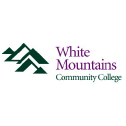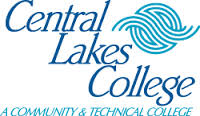What do they do?
Monitor recreational areas, such as pools, beaches, or ski slopes, to provide assistance and protection to participants.
Also known as:
Beach Attendant, Beach Lifeguard, Life Guard, Lifeguard, Marine Safety Officer, Ocean Lifeguard, Ocean Lifeguard Specialist, Pool Attendant, Pool Lifeguard, Ski Patrol Paramedic, Ski Patroller
-
2.5%
Change
Ranks #44 in job growth rate1,260Job Openings
Ranks #14 in net job growth
Colleges with the most graduates that become Lifeguards, Ski Patrol, and Other Recreational Protective Service Workers
Looking for colleges that offer a specific major? Use the College Match Tool to find your best-matched schools and discover your estimated Net Price!
- Bachelor's degree (38%)
- Some college, no degree (26%)
- High school diploma equivalent (16%)
- Master's degree (10%)
- Associate's degree (8%)
- Less than high school diploma (2%)
- Doctorate or Professional Degree (1%)
People in this career often have these skills:
- Monitoring - Monitoring/Assessing performance of yourself, other individuals, or organizations to make improvements or take corrective action.
- Speaking - Talking to others to convey information effectively.
- Social Perceptiveness - Being aware of others' reactions and understanding why they react as they do.
People in this career often know a lot about:
- Customer and Personal Service - Knowledge of principles and processes for providing customer and personal services. This includes customer needs assessment, meeting quality standards for services, and evaluation of customer satisfaction.
- Public Safety and Security - Knowledge of relevant equipment, policies, procedures, and strategies to promote effective local, state, or national security operations for the protection of people, data, property, and institutions.
- English Language - Knowledge of the structure and content of the English language including the meaning and spelling of words, rules of composition, and grammar.
People in this career often have talent in:
- Problem Sensitivity - The ability to tell when something is wrong or is likely to go wrong. It does not involve solving the problem, only recognizing that there is a problem.
- Oral Expression - The ability to communicate information and ideas in speaking so others will understand.
- Far Vision - The ability to see details at a distance.
People in this career often do these activities:
- Patrol natural areas to ensure safety or enforce regulations.
- Rescue people from hazardous situations.
- Request emergency personnel.
- Administer first aid.
- Warn individuals about rule violations or safety concerns.
- Inspect facilities for cleanliness.
- Record information about environmental conditions.
- Maintain operational records.
- Observe individuals' activities to gather information or compile evidence.
- Monitor environmental conditions to detect hazards.
- Operate ships or other watercraft.
- Provide safety training.
- Inspect equipment to ensure safety or proper functioning.
- Train employees in proper work procedures.
- Assist customers to ensure comfort or safety.
- Participate in athletic events.
This page includes data from:

 Occupation statistics: USDOL U.S. Bureau of Labor Statistics Occupational Employment Statistics
Occupation statistics: USDOL U.S. Bureau of Labor Statistics Occupational Employment Statistics
 Videos: CareerOneStop, USDOL/ETA and the Minnesota Department of Employment & Economic Development
Videos: CareerOneStop, USDOL/ETA and the Minnesota Department of Employment & Economic Development















